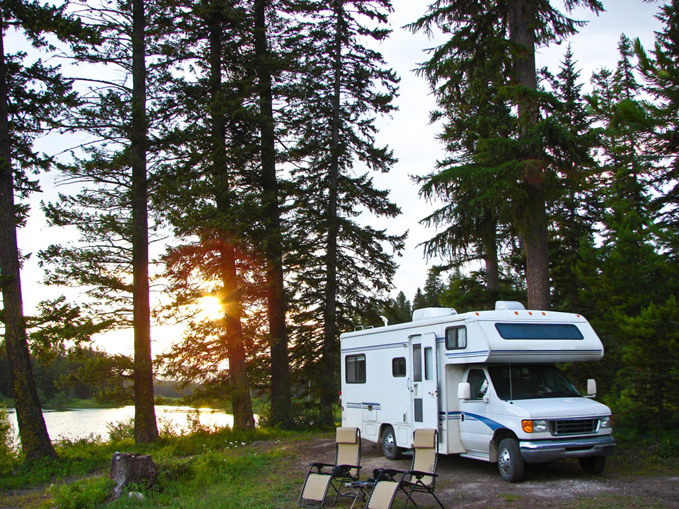
The Best RV Trip Planning Tips for Fun Family Vacations
Did you know that in the U.S. alone, 1 million people live a full-time RV life?
It turns out people are falling back in love with RVs. Travelers are eager to spend time with their families while enjoying the outdoors. Long-term interest in RV trip planning seems to be here to stay.
If you’re looking to plan an RV trip with your family, you want it to be memorable and worry-free. With our RV planning tips, you can have a safe and fun adventure.
Here’s how to plan for a memorable RV vacation.
Pick a Destination Anyone Can Enjoy
When it comes to taking RV vacations with your family, it’s good to pick a destination that anyone can enjoy.
A good family-friendly campground can offer entertainment options for adults and children. The best RV parks offer fun amenities like mini-golf, hiking trails, game rooms, fishing ponds, bike rentals, and pet-friendly parks.
Try to find one with nearby attractions that are family-friendly too. Zoos, parks, museums, and other unique tourist destinations are suitable for anyone.
You may even want to change campgrounds every few nights. That way everyone has a chance to experience something they like during their outing.
It’s Not Just About the Destination
When it comes to RV vacations, the destination is only part of the experience. The other half is about the journey there.
So why not make a road trip part of your travel? Sometimes the best route isn’t always the quickest. There are some fantastic road trips for the RVer that will provide hundreds of miles of gorgeous views.
You could check out historic routes like Route 66, or view the ocean from the Pacific Coast Highway.
Taking a scenic route is sure to impress everyone, regardless of age.
Underestimate Your Time on the Road
You may already have a trip and route in mind. But before you set off, you need to understand your drive time.
Remember that if you’re taking an RV, you may be driving a little slower than you normally would. You probably aren’t always driving at the speed limit.
Plus, if you’re traveling with small children or pets, they may get restless and require a few more pit stops.
That’s why you should always underestimate the time you will spend driving. The only person who knows how much you can comfortably drive during a day is you.
Maybe your max limit is 8 hours of driving a day. To keep yourself alert and in good spirits, drive for no more than 6-7 hours a day.
This keeps yourself, your family, and others safe on the road. Otherwise, fatigued driving can lead to highway hypnosis, a dangerous and risky mental state. Highway hypnosis can lead to difficulty focusing, short-term memory issues (including missing important road signs), and lane drifting.
Understand the Weather
Look at the average temperatures and weather conditions for the areas that you plan on traveling through, as well as your destination, for the season in which you will be traveling.
Obviously, snow and ice are terrible conditions to drive in. However, road conditions aren’t the only adverse weather conditions you want to avoid. Extreme temperatures, excessive rain, hurricanes, and tropical storms are all conditions to be cautious of.
The season and weather will also determine what sights you will be able to see and what attractions you will be able to visit. While you’re researching the weather, research what attractions are open during the season you will be traveling.
Even if they are open, they may have reduced hours. This is especially true of attractions in northern areas that are prone to colder winter weather.
Prepare for the Worst
That brings us to our next point – you need to prepare for the worst.
No one likes to think about it, but emergency preparedness is essential. Along with the essential items (clothes, toiletries, snacks) you need to pack some extras.
A first aid kit is probably the first item that comes to mind. But along with that, you may need some emergency items for your RV. You can either buy a premade emergency road kit or make one of your own.
What should you include in your emergency road kit? At the very least you should have:
- Jumper cables
- Safety vest
- Glow sticks
- Tire pressure gauge
- Flashlight
- Extra batteries
- Emergency blanket
- Tire pressure gauge
- Warning triangle
Along with your emergency kit, you should consider getting a portable generator. Not only is it great for power outages, but if you decide to go off-grid and need some extra power, a portable generator will come in handy.You can rent a portable generator at https://activegenrental.com/portable-generator/, check out the pricing and compare against the various models for your needs!
Don’t Forget Insurance
Not only should you consider RV insurance, but adding travel insurance to it can be a good idea. Most people think travel insurance is only for international trips, but that’s not the case.
Travel insurance can be purchased ahead of time. After an accident, you can file a claim for reimbursement. There are a few different types of travel insurance.
Some plans will cover mishaps like lost luggage. Others are medical travel insurance, which can cover you in the event of an emergency. Some providers have package plans that are customizable, allowing for medical coverage as well as luggage problems.
Ideally, you will never need insurance on your RV adventures. But sooner or later, it’s inevitable that something will go wrong. At the very least, insurance can help reimburse you for some of your expenses.
Good RV Trip Planning Is Key to a Great Family Vacation
Ready to start your RV trip planning? Regardless of whether or not it is your first trip or your hundredth, following our guide will help you be better prepared for RV trips. That means less frustration and more time to enjoy your family vacations.
For more trip and vacation ideas, be sure to check out the Travel section of our site.
